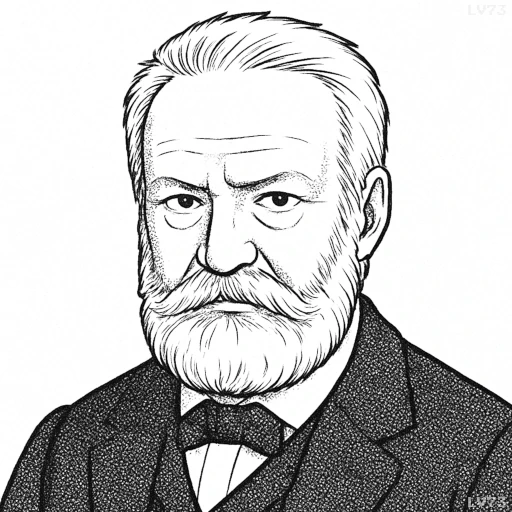“Thought is the labor of the intellect, reverie is its pleasure.”

- February 26, 1802 – May 22, 1885
- Born in France
- Author, poet, playwright
table of contents
Quote
“Thought is the labor of the intellect, reverie is its pleasure.”
Explanation
In this quote, Victor Hugo distinguishes between thought and reverie (daydreaming), two different aspects of the intellectual process. Thought, according to Hugo, is the active, productive work of the mind—focused, structured, and driven by logic. It represents the labor of the intellect, requiring effort, discipline, and mental energy to analyze, reason, and solve problems. On the other hand, reverie is the pleasurable, more spontaneous form of intellectual activity. It is a state of dreaming, reflection, or fantasy, where the mind is free to wander and explore ideas without the constraints of structure or purpose. Reverie provides a kind of mental escape or enjoyment, allowing for creative ideas to flow without the pressure of action or productivity.
Hugo’s words highlight the dual nature of the mind—how it balances the effort and discipline of thinking with the freedom and pleasure of daydreaming. Both are essential for intellectual and creative growth, with thought providing the structure and reverie offering the inspiration.
In modern terms, this quote speaks to the value of both focused thinking and creative exploration. It reminds us that while we must engage in hard work and critical thinking, there is also a place for unstructured creativity and reflection. Both forms of mental engagement—labor and pleasure—are necessary for fostering innovation and personal growth.
Would you like to share your impressions or related stories about this quote in the comments section?




